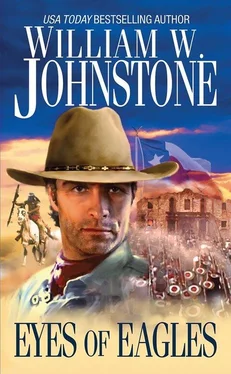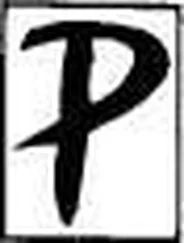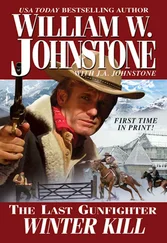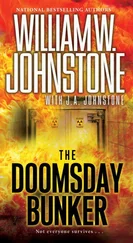“ Teniente? ” a man called for his lieutenant.
Jamie waited, another arrow notched, ready to fly. The soldier stepped into view and his eyes widened in shock and horror when he spotted Jamie. The horror did not last long as the arrow from Jamie’s bow took the man in the chest. He fell, his rifle clattering on the stones.
Jamie ran to the mouth of the alley and almost ran into a huge Mexican sergeant. The sargento lifted his rifle, a smile on his lips. Jamie laid the hard bow across the man’s face, the blow knocking him to the ground, blood streaming from a broken nose. Jamie was on him, knife in hand. When the blade rose again, it was dripping crimson.
Jamie dragged the body out of the mouth of the alley and squatted down, assessing his situation. There were sounds of fierce fighting all around him, and the booming of cannon as the Mexicans fought the assault. But the Mexican gunners, for whatever reason, weren’t too proficient with the cannon; the cannonballs tore up more local homes than hurt any attackers.
Jamie made a dozen more kills that day, with arrow, knife, and musket ball. He was catching his breath late that afternoon when he heard his name called.
“Jamie!” Bonham called from behind him. Jamie turned. “Ben Milam wants you, right now.”
“Jamie,” Ben said, handing him a paper. “This is a report on the first day’s fighting. Take this to the provisional government. By the time you reach there, this scrap will be over. You go on home and visit for a time.” He winked at him. “I’ll see you later on, lad.”
Those were the last words he ever spoke to Jamie. Early on the third day of fighting, “Ol’ Ben,” as his volunteers called him, was shot in the head and died instantly. Francis Johnson took over total command. The Texans, enraged at the death of Ben Milam, fought like wild men. Over a hundred and fifty miles away, Jamie was handing the report to a member of the provisional government.
General Cos found many of his troops frightened and demoralized. Almost two hundred men, including some officers, had already deserted him. General Cos, fighting down his own growing panic, retreated to the Alamo mission, but the Texans used the captured cannon and hammered at the trapped troops. Late on the fifth day, Cos had had enough. He surrendered himself and over a thousand men to Burleson.
It was a glorious time for the Texas volunteers. Outnumbered, they had beaten a much larger force.
Burleson accepted General Cos’s surrender and then let the man go after Cos promised he would never again fight Texans. It was a promise he was to break, very soon.
Back in the Big Thicket country, with Kate and his family, Jamie could not believe it when he heard that General Cos and over a thousand of his men had been set free and even provided with guns and powder and shot to protect them against possible Indian attacks.
“We tweaked their noses, Kate,” he said to his wife. “Santa Anna will never forgive or forget that.”
But few agreed with that assessment. Only a handful of people felt the Mexican government would retaliate for the humiliation of General Cos at San Antonio. The provisional government issued a call for a new convention to be held at Washington-on-the-Brazos on March 1, 1836.
Houston pleaded with the Texas provisional government to send out a call for troops. He was ignored.
He was told the war was over. Texas had won. Mexico will give in to our demands for statehood within the Republic. Everybody go home.
* * *
But not everybody went home. A few felt sure that Mexico would send troops into Texas. A small force of Texas volunteers was left behind at the Alamo, with Green Jameson in charge of making the old mission more fortlike. Austin was in Louisiana, seeking loans and volunteers. Houston was trying to rally Texans to make ready for a fight few believed was coming; Houston also wanted to abandon the Alamo and blow it up, believing the place could not be defended. He sent Bowie and a small force to San Antonio to do just that. But Bowie found the men at the Alamo in good spirits and ready for a fight, so the Alamo remained intact, under the command of Colonel James Neil.
Meanwhile, the provisional government’s legislative council in San Felipe came up with a strange idea to invade the Mexican city of Matamoros. Their reasoning behind this was that most of the city’s population despised Santa Anna and would certainly embrace and support a Texas expeditionary force. Houston thought the scheme a nutty one and refused to have anything to do with it. So the council picked James Fannin to command the force and was named a colonel. Fannin pulled out over two hundred men from the San Antonio area. That left Neil with only about a hundred men to defend the Alamo. Fannin had also stripped the place of most of its supplies, leaving Neil with little food and no medicines.
Governor Henry Smith was furious and a big row now developed between the council and the governor’s office, with cuss words flying back and forth. The governor claimed that he was in charge and the council claimed they were in charge. Chaos reigned when calm should have been the order of the day.
Back east, Jamie Ian MacCallister packed up a few things, kissed Kate and the children, and rode west, soon linking up with a few volunteers who felt as Houston did.
Houston was in charge of the Texas army, but Fannin took his orders from the council and Houston had no authority over him. Colonel Fannin blissfully went about the business of getting his troops ready to invade Matamoros. But Houston was a charmer, and he rode to Goliad and spoke to the men encamped there.
“They’ll be plenty of fighting for all, boys,” he told them. “We don’t need to go off half-cocked and split our forces.”
He convinced enough of the men so that for the moment, the plan to invade Matamoros was tabled.
Fannin was furious but there was nothing he could do about the situation except fume and pout. Which he did, quite well and often.
Jamie had paused in Nacogdoches and had linked up with Davy Crockett and his Tennessee Mounted Volunteers.
A few weeks earlier, Travis had been commissioned by Governor Smith to put together a force and quickly march to the Alamo. Upon arrival, Colonel James Neil left because of illness in his family and Travis and Bowie immediately started arguing about who was in command. When they weren’t arguing, they were in agreement on one point: they had to have reinforcements and they sent out messages to that effect. But Colonel Fannin, still smarting over Houston’s interference with his men and his grand plan, and still dreaming of capturing Matamoros, refused to allow any of the men in his command to go to the Alamo.
But Crockett was on the way, as were the First Company of Volunteers from New Orleans. And from all over Texas, in small groups and alone, men were riding toward the Alamo, to defend the dream of liberty.
* * *
When they camped each night, Jamie was amused by the antics and the stories from Davy Crockett and his Tennessee boys. To Jamie, Crockett seemed an unlikely choice to be elected to the United States Congress, but he certainly had been elected, in 1827, ’29, and ’33. And he came close to being nominated for the vice president’s slot on the Whig ticket.
“Last year,” Crockett told Jamie, “Ol’ Andy Jackson conspired agin me and refused to support me. So I told ’em all to go to hell... among other places. I was goin to Texas. And by God, here I am.”
“Why?” Jamie asked.
Davy chuckled. “To fight, boy. To fight for freedom. Why are you here?”
Jamie smiled, the light from the dancing flames of the campfire highlighting his strong face. “To fight, Mr. Crockett.”
Crockett’s men laughed at that and Jamie looked around at the circled group.
Читать дальше









